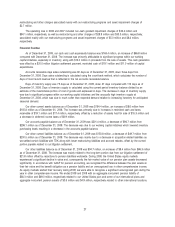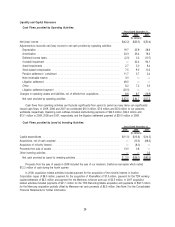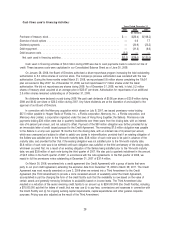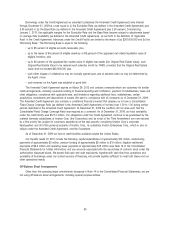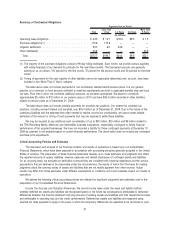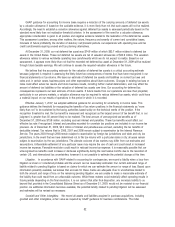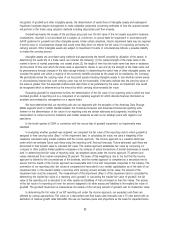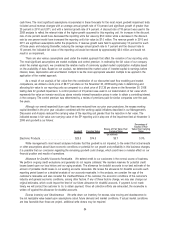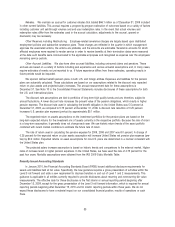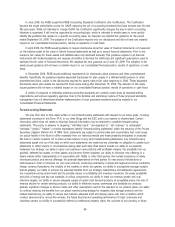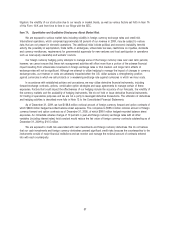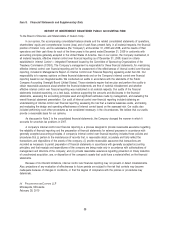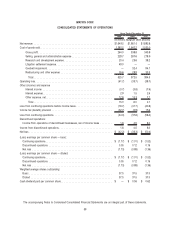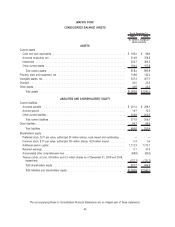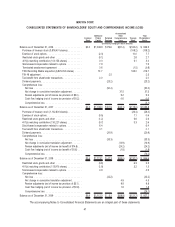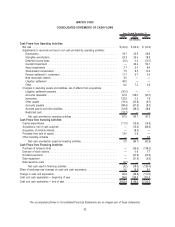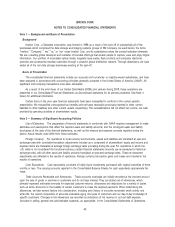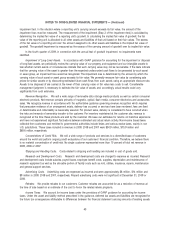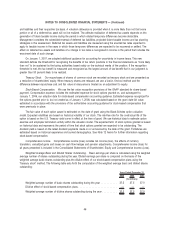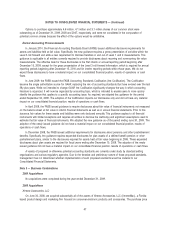Memorex 2009 Annual Report Download - page 44
Download and view the complete annual report
Please find page 44 of the 2009 Memorex annual report below. You can navigate through the pages in the report by either clicking on the pages listed below, or by using the keyword search tool below to find specific information within the annual report.litigation; the volatility of our stock price due to our results or market trends, as well as various factors set forth in Item 1A
of this Form 10-K and from time to time in our filings with the SEC.
Item 7A. Quantitative and Qualitative Disclosures About Market Risk.
We are exposed to various market risks including volatility in foreign currency exchange rates and credit risk.
International operations, which comprised approximately 55 percent of our revenue in 2009, may be subject to various
risks that are not present in domestic operations. The additional risks include political and economic instability, terrorist
activity, the possibility of expropriation, trade tariffs or embargoes, unfavorable tax laws, restrictions on royalties, dividends
and currency remittances, requirements for governmental approvals for new ventures and local participation in operations
such as local equity ownership and workers’ councils.
Our foreign currency hedging policy attempts to manage some of the foreign currency risks over near term periods;
however, we cannot ensure that these risk management activities will offset more than a portion of the adverse financial
impact resulting from unfavorable movements in foreign exchange rates or that medium and longer term effects of
exchange rates will not be significant. Although we attempt to utilize hedging to manage the impact of changes in currency
exchange rates, our revenue or costs are adversely impacted when the U.S. dollar sustains a strengthening position
against currencies in which we sell products or a weakening exchange rate against currencies in which we incur costs.
In accordance with established policies and procedures, we may utilize derivative financial instruments, including
forward exchange contracts, options, combination option strategies and swap agreements to manage certain of these
exposures. Factors that could impact the effectiveness of our hedging include the accuracy of our forecasts, the volatility of
the currency markets and the availability of hedging instruments. We do not hold or issue derivative financial instruments
for trading or speculative purposes and we are not a party to leveraged derivative transactions. The utilization of derivatives
and hedging activities is described more fully in Note 13 to the Consolidated Financial Statements.
As of December 31, 2009, we had $136.8 million notional amount of foreign currency forward and option contracts of
which $88.8 million hedged recorded balance sheet exposures. This compares to $595.4 million notional amount of foreign
currency forward and option contracts as of December 31, 2008, of which $99.0 million hedged recorded balance sheet
exposures. An immediate adverse change of 10 percent in year-end foreign currency exchange rates with all other
variables (including interest rates) held constant would reduce the fair value of foreign currency contracts outstanding as of
December 31, 2009 by $10.5 million.
We are exposed to credit risk associated with cash investments and foreign currency derivatives. We do not believe
that our cash investments and foreign currency derivatives present significant credit risks because the counterparties to the
instruments consist of major financial institutions and we monitor and manage the notional amount of contracts entered
into with each counterparty.
37


